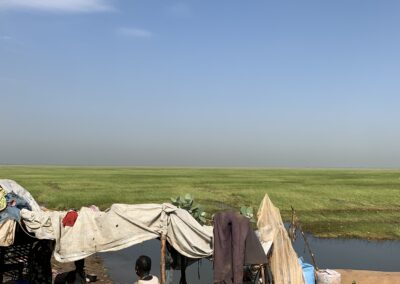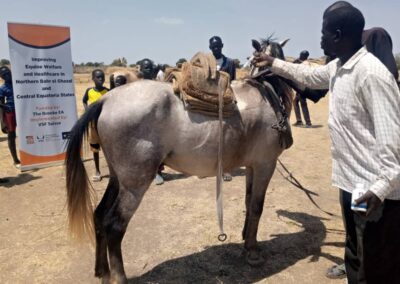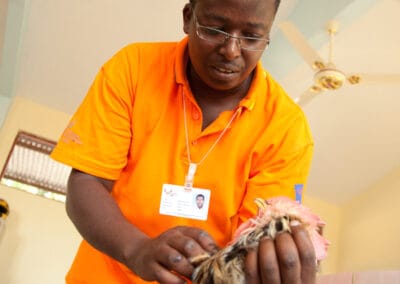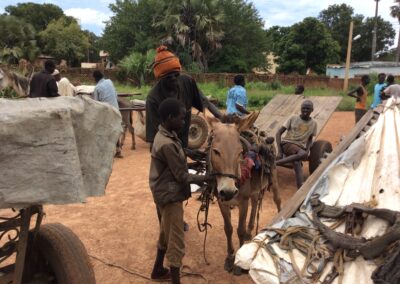Providing animal health services, improving food security, raising public health awareness and conflict reduction
Project Overview
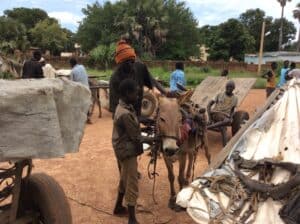
Country
South Sudan
Project name
CCLERP
Duration of the project
Start: |
01.08.2020 |
End: |
31.07.2024 |
Budget
USD 2’467’901
Project area
Topics
Tags
Background
The civil war that kindled in December 2013 in South Sudan has since impacted significantly on the lives and livelihoods of populations of Greater Upper Nile (GUN), resulting in refugee movements. In 2020 there are about 1.6 million internally displaced persons (IDPS) and 2.2 million refugees who have been displaced to neighbouring states such as Sudan, Ethiopia, the Democratic Republic of Congo, Uganda or Kenya.
Many of those who fled due to the crisis returned to South Sudan between 2017 and 2019. About 85% have expressed their intention to stay permanently and 87% to settle in their former locations of residence. Uncertainty about the security at the final destinations has been cited as a major reason for reluctance to return.
However, the increasing livelihood challenges in Sudan and Ethiopia and improving security context in South Sudan are likely to result in an escalated rate of return. This aggravates the already existing problem of food insecurity in the country and holds potential for conflict, because the livelihoods in Southern Sudan are already low. The resident population that stood the crisis has suffered a crescendo of food insecurity presently. 6 million people or an estimated 51% of the southern Sudanese population suffer from severe food insecurity (2020, USAID). The GUN region remains the worst affected region.
Significantly, the conflict has had an overbearing gender dimension. Of the total 1.6 million internally displaced persons in the country, up to 80% of the households are femaleheaded and among the 2,216,652 refugees in neighbouring countries, 86% are women and children (women 23%; children 63%, UNHCR).
Despite the relative calm resulting from cessation of armed conflict between the two main political national rivals and transitional government formation, cattle and revenge related violence has persisted in the country. Revenge has established itself as a social-cultural and historically determined mechanism in Southern Sudan. The practice of vigilantism has been further intensified by the availability of firearms and the experience of civil war. The practice of vigilantism has been further intensified by the availability of firearms and the experience of civil war.
This is further exacerbated by devastating implications of 2019 floods whose effects have contributed to destruction of crops and submerged farmlands and estimated mortality among 26% of cattle, 23% of sheep and goats and 9% of poultry populations. The flood waters have persisted into February 2020 in most affected areas, further impacting negatively on livestock health leading to continued loses and reduction in production. Since June 2020, renewed severe flooding has occurred in southern Sudan. According to the World Food Programme, the lives of 700,000 people have been affected, and their livestock, farms and harvests have been severely compromised.
Project
The aim of the project is to contribute to improving food security of vulnerable, conflict-affected, displaced and repatriated populations in Southern Sudan through livestock treatment and vaccination campaigns, including nutrition and peace messages. The program targets 1,400,000 people in Greater Upper Nile.
Livestock disease patterns, incidences and effects have changed with the floods and pose a significant threat to the livelihoods of livestock dependent populations of the Greater Upper Nile (GUN) and pose increased risks to public health with regard to endemic, emerging and neglected tropical diseases such as rabies, Rift Valley fever (RVF), brucellosis, anthrax, tuberculosis and avian influenza.
Our interventions entail multiple activities:
- Cost based provision of animal health services through capacity building.
- Training and support of Community Animal Health Workers (CAHWs).
- Livestock treatment and vaccination campaigns as an incentive in promoting peaceful existence among conflicting communities.
- Public health awareness campaigns, appropriate nutrition messaging, food hygiene, one health including neglected tropical diseases among other zoonoses of public health concern.
- Livestock trade promotion and women / youth empowerment.
- In addition, conflict mitigation will be promoted through peace messaging/ dissemination during animal health service delivery.
You can find the interim assessment of the project carried out by an external body here.
Which of the 17 UN Sustainable Development Goals does this project work towards?







